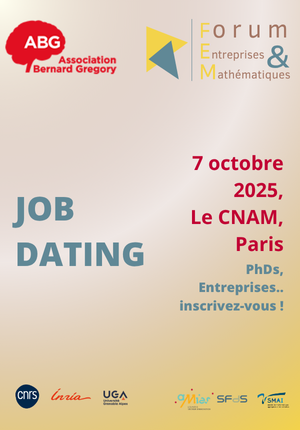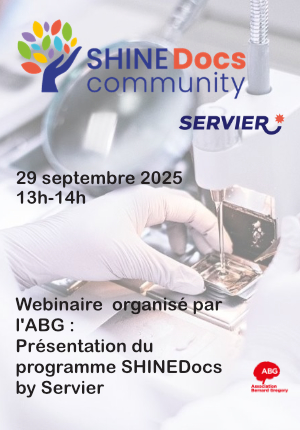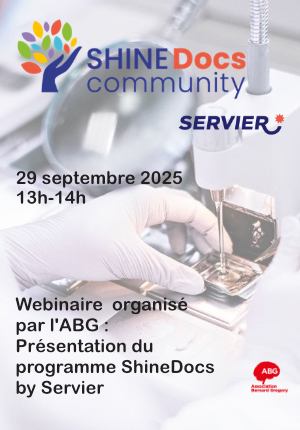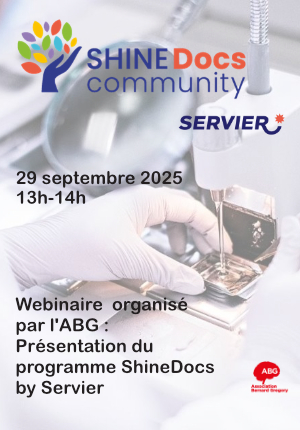Réduire la fracture entre spécification expressive et vérification efficace pour l'apprentissage automatique // Bridging the embedding gap between expressive specification and efficient verification of machine learning
| ABG-132920 | Thesis topic | |
| 2025-07-17 | Public/private mixed funding |
CEA Paris-Saclay Laboratoire pour la Sûreté du Logiciel
Saclay
Réduire la fracture entre spécification expressive et vérification efficace pour l'apprentissage automatique // Bridging the embedding gap between expressive specification and efficient verification of machine learning
- Computer science
Informatique et logiciels / Sciences pour l’ingénieur / Data intelligence dont Intelligence Artificielle / Défis technologiques
Topic description
La vérification formelle de réseaux de neurones se heurte à une double tension entre d’une part,
la capacité à exprimer des spécifications compactes, expressives et décrivant des
propriétés de haut-niveau de systèmes comprenants des composants IA et, d’autre part, la possibilité
effective de traduire ces spécifications aux prouveurs états de l’art.
L'état de l'art présente un ensemble de propriétés dites « globales » qui décrivent des comportements généraux sur le composant IA.
Ces propriétés sont partiellement formalisées mais ne sont à l'heure actuelle pas exprimables dans les langages de spécification standards au sein de la communauté. Elles restent donc pour la plupart théoriques.
Cette thèse se propose de réduire cette tension en proposant une formalisation au sein du langage WhyML de ces propriétés. La compilation efficace de ces propriétés via des techniques de réécriture de graphe automatique seront ensuite investiguées, exploitant des encodages avancés de réseaux de neurones pour la vérification. L'état de l'art n'offrant à l'heure actuelle que peu de travaux sur la comparaison des performances de prouveurs, cette thèse investiguera également ce volet, en s'inspirant des approches de portfolio de prouveurs.
------------------------------------------------------------------------------------------------------------------------------------------------------------------------
------------------------------------------------------------------------------------------------------------------------------------------------------------------------
Formal verification of neural networks is facing a double-faceted issue. The expressiveness of specifications (as in: compact and close to human understanding) is apparently clashing with their efficient translation to state-of-the-art prover, who only support a fragment of arithmetic without quantifiers.
This thesis will investigate "global" properties. Such class of properties describe generic behaviours of neural networks, beyond the level of local samples. Such properties are currently partially specified and most of them cannot be soundly derived into standard prover queries. Using the expressive power of the WhyML specification langage, this thesis will strive to propose a common encoding for global properties and investigate their efficient compilation to prover queries thanks to automated graph editing techniques.
This thesis will also investigate the comparison of provers performance, in particular drawing inspiration from portfolio approaches.
------------------------------------------------------------------------------------------------------------------------------------------------------------------------
------------------------------------------------------------------------------------------------------------------------------------------------------------------------
Pôle fr : Direction de la Recherche Technologique
Pôle en : Technological Research
Département : Département Ingénierie Logiciels et Systèmes (LIST)
Service : LSL (DILS)
Laboratoire : Laboratoire pour la Sûreté du Logiciel
Date de début souhaitée : 01-11-2025
Ecole doctorale : Sciences et Technologies de l’Information et de la Communication (STIC)
Directeur de thèse : MRAIDHA Chokri
Organisme : CEA
Laboratoire : DRT/DILS//LSEA
URL : https://julien.girard-satabin.fr
la capacité à exprimer des spécifications compactes, expressives et décrivant des
propriétés de haut-niveau de systèmes comprenants des composants IA et, d’autre part, la possibilité
effective de traduire ces spécifications aux prouveurs états de l’art.
L'état de l'art présente un ensemble de propriétés dites « globales » qui décrivent des comportements généraux sur le composant IA.
Ces propriétés sont partiellement formalisées mais ne sont à l'heure actuelle pas exprimables dans les langages de spécification standards au sein de la communauté. Elles restent donc pour la plupart théoriques.
Cette thèse se propose de réduire cette tension en proposant une formalisation au sein du langage WhyML de ces propriétés. La compilation efficace de ces propriétés via des techniques de réécriture de graphe automatique seront ensuite investiguées, exploitant des encodages avancés de réseaux de neurones pour la vérification. L'état de l'art n'offrant à l'heure actuelle que peu de travaux sur la comparaison des performances de prouveurs, cette thèse investiguera également ce volet, en s'inspirant des approches de portfolio de prouveurs.
------------------------------------------------------------------------------------------------------------------------------------------------------------------------
------------------------------------------------------------------------------------------------------------------------------------------------------------------------
Formal verification of neural networks is facing a double-faceted issue. The expressiveness of specifications (as in: compact and close to human understanding) is apparently clashing with their efficient translation to state-of-the-art prover, who only support a fragment of arithmetic without quantifiers.
This thesis will investigate "global" properties. Such class of properties describe generic behaviours of neural networks, beyond the level of local samples. Such properties are currently partially specified and most of them cannot be soundly derived into standard prover queries. Using the expressive power of the WhyML specification langage, this thesis will strive to propose a common encoding for global properties and investigate their efficient compilation to prover queries thanks to automated graph editing techniques.
This thesis will also investigate the comparison of provers performance, in particular drawing inspiration from portfolio approaches.
------------------------------------------------------------------------------------------------------------------------------------------------------------------------
------------------------------------------------------------------------------------------------------------------------------------------------------------------------
Pôle fr : Direction de la Recherche Technologique
Pôle en : Technological Research
Département : Département Ingénierie Logiciels et Systèmes (LIST)
Service : LSL (DILS)
Laboratoire : Laboratoire pour la Sûreté du Logiciel
Date de début souhaitée : 01-11-2025
Ecole doctorale : Sciences et Technologies de l’Information et de la Communication (STIC)
Directeur de thèse : MRAIDHA Chokri
Organisme : CEA
Laboratoire : DRT/DILS//LSEA
URL : https://julien.girard-satabin.fr
Funding category
Public/private mixed funding
Funding further details
Presentation of host institution and host laboratory
CEA Paris-Saclay Laboratoire pour la Sûreté du Logiciel
Pôle fr : Direction de la Recherche Technologique
Pôle en : Technological Research
Département : Département Ingénierie Logiciels et Systèmes (LIST)
Service : LSL (DILS)
Candidate's profile
Apply
Close
Vous avez déjà un compte ?
Nouvel utilisateur ?
More information about ABG?
Get ABG’s monthly newsletters including news, job offers, grants & fellowships and a selection of relevant events…
Discover our members
 CESI
CESI  Aérocentre, Pôle d'excellence régional
Aérocentre, Pôle d'excellence régional  CASDEN
CASDEN  Ifremer
Ifremer  Laboratoire National de Métrologie et d'Essais - LNE
Laboratoire National de Métrologie et d'Essais - LNE  Groupe AFNOR - Association française de normalisation
Groupe AFNOR - Association française de normalisation  ANRT
ANRT  SUEZ
SUEZ  Généthon
Généthon  PhDOOC
PhDOOC  MabDesign
MabDesign  MabDesign
MabDesign  ADEME
ADEME  Institut Sup'biotech de Paris
Institut Sup'biotech de Paris  Nokia Bell Labs France
Nokia Bell Labs France  ASNR - Autorité de sûreté nucléaire et de radioprotection - Siège
ASNR - Autorité de sûreté nucléaire et de radioprotection - Siège  Tecknowmetrix
Tecknowmetrix  TotalEnergies
TotalEnergies  ONERA - The French Aerospace Lab
ONERA - The French Aerospace Lab




